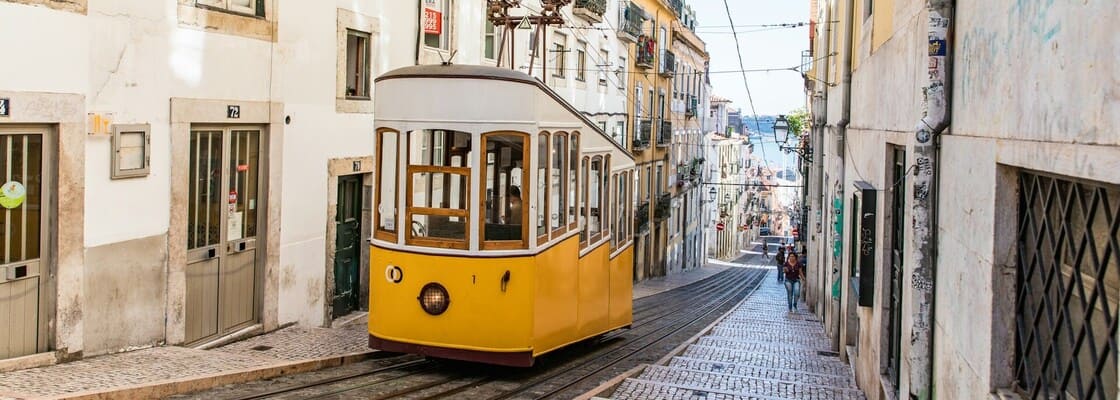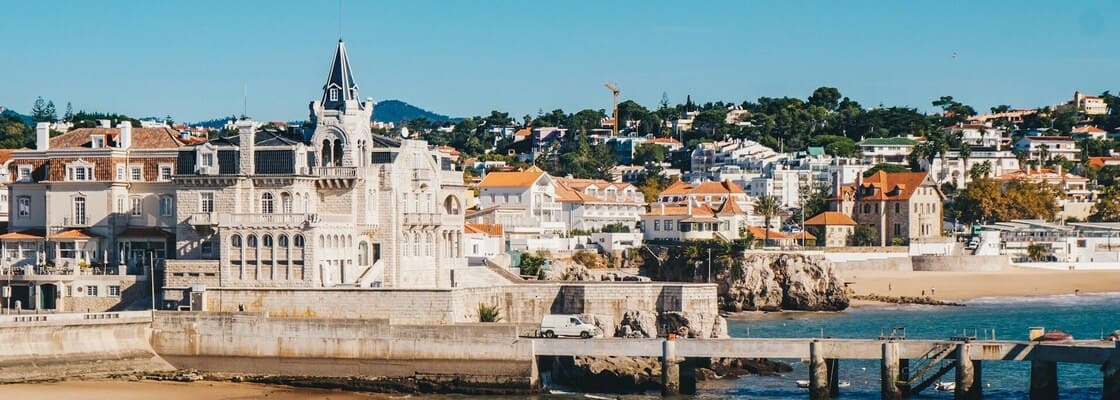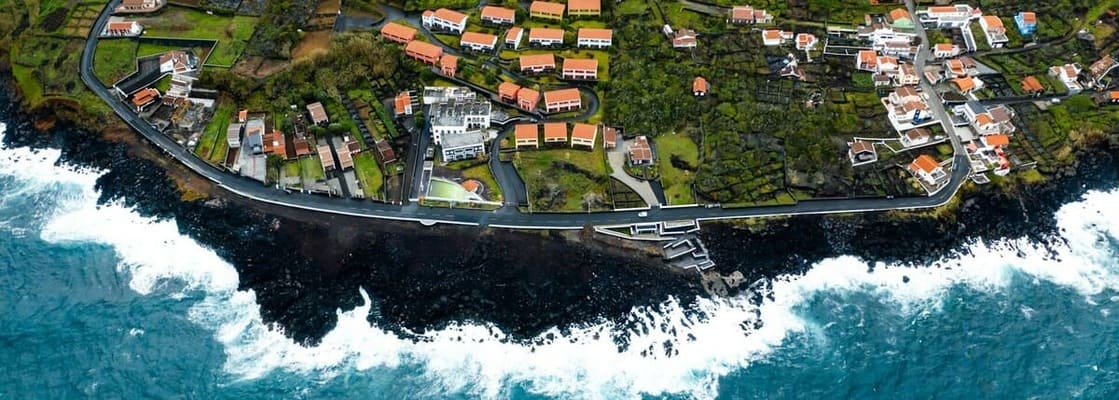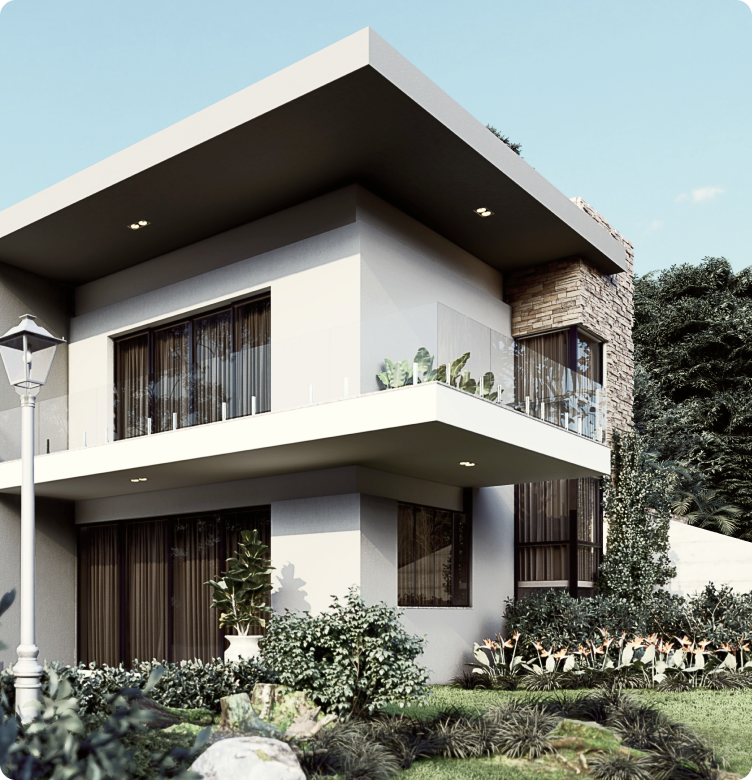Property buyers have found Portugal to be a treasure trove, given the country’s dynamic and varied real estate market that continues to move from strength to strength. With a vast range of property types available, from modern apartments to beach villas and an array of locations where you can secure a nice return on your property, Portugal has cemented itself as one of the very best countries to invest in.
In this article, we’ll provide you with a complete overview of the real estate market, arming you with insights into property prices, market dynamics, investment opportunities, and practical information about real estate purchases, such as taxes and fees. If you are considering buying property in Portugal, real estate investors should know that they are on to a winner!
Why invest in Portugal?

Portugal has long been known for its captivating landscapes, vast stretches of pristine golden sands, and high quality of life. While the Algarve and Lisbon were once the key areas to move to or invest in property, over the last ten years, Porto has transformed into one of the most attractive cities in Europe, while lesser-known areas such as the Silver Coast, the Alentejo, and the southwest are now firmly on the map.
Alongside the country’s affordability and high quality of life luring expats and investors to Portugal, some of the key reasons to invest in real estate in Portugal include:
- Strong rental yields
- Dynamic and resilient real estate market
- Thriving tourism sector
- A range of attractive investment property types
- Blossoming tech and business hub
- Safety and stability
- English widely spoken
- Excellent international transport links
Portuguese Real Estate Market
While property prices have been increasing rapidly in the past few years, you’ll still find real estate prices in Portugal to be affordable when compared with property values in other Western European countries.
There are many different factors that are currently influencing this hike in residential real estate prices. Firstly, given the natural beauty of Portugal, many expats have relocated to Portugal to seek a higher quality of life, and more tourists than ever before have chosen Portugal as their ideal holiday destination, with record numbers gracing Portugal’s shores in 2023.
This is alongside the booming tech and startup scene that really came to life following Web Summit’s move to the Portuguese capital in 2016 and government policies encouraging entrepreneurs and digital nomads to relocate to the country.
Property prices
The cost of residential properties here in Portugal will vary based on the location of purchase. In 2023, the average asking price per square meter in the Lisbon Metropolitan Area was €4,061. In the Porto Metropolitan Area, it stood at €3,291, while in the Algarve and the Alentejo, prices averaged €3,897 and €2,685, respectively.
If you look at prices in the north of Portugal, the national average asking price was €1,740 per square meter, while in Central Portugal, prices stood at €1,864, highlighting the affordability of the lesser-known parts of the country.
Rental yields in Portugal
As with property prices, rental yields will vary depending on where you look to buy property.
Add in the table with rental yields here.
Lisbon Neighborhood | 2023 Rental Yields (%) |
Lisbon Metropolitan Area | 6 |
Porto Metropolitan Area | 6.7 |
Algarve | 5.6 |
Cascais | 5.6 |
Sintra | 6.3 |
Future predictions
Property investments can be seen in most major hubs, for example, in the renovation of old buildings, the building of apartments, more co-living and co-working spaces cropping up in major cities, and the growth of new hotels, providing many different property investment opportunities for foreign investors. This is alongside the continued interest from tourists seeking Portugal as a top holiday destination.
Given the interest in exapts and tourists in lesser known areas of the country, such as the Alentejo and the North of Portugal, it is likely that these areas will take a more central role in the development of tourism in the country, such as with eco-tourism and wellness centers cropping up in the Alentejo, Douro Valley, and Aljezur. There is strong potential for this market to grow significantly in the coming years, for example, with tourists looking for eco-retreats, to enjoy the ambiance of the Portuguese countryside or explore wine-making practices.
Moving through 2024, the Portuguese economy is expected to gain momentum, although against the backdrop of political and economic uncertainties both on a domestic and global level. While currently interest rates are high, rates are anticipated to decrease this year, leading to more favorable market conditions in the coming year.
Investing in Long-Term or Short-Term Rentals
Both long and short-term rentals in Portugal can provide you with a nice return on your investment. However, it’s crucial to understand each and which option could be better suited to you. In this section, we provide a rundown of the advantages and disadvantages of each.
Long-term rentals
Below, we provide key pros and cons of long-term rentals.
Advantages
- Certainty of a fixed income: In Portugal, long-term rental agreements spanning at least 12 months ensure a steady stream of rental income, while for short-term rentals, there may be gaps between tenant occupancy.
- Less hands-on/lower property management costs: Having a single long-term tenant means reduced need for frequent cleaning and maintenance tasks, thereby lowering overall property management costs.
- Less property damage: Extended occupancy by tenants typically leads to less property damage compared to short-term leases, resulting in lower maintenance expenses.
Disadvantages
- Lower rental yields: The rental yields for long-term rentals are lower than for short-term rentals.
- Protection for tenants: Although not really a disadvantage, it is worth bearing in mind that Portuguese legislation has stringent protection for tenants, meaning that you may find it difficult to get rid of tenants or raise the rental price.
Short-term rentals
Below, we highlight the pros and cons of short-term rentals.
Advantages
Higher rental yields: As we’ve mentioned, short-term rentals provide a higher rental income than long-term rentals.
Personal use: Short-term rentals offer you the flexibility to utilize the property whenever you wish, allowing you to stay at your convenience.
Disadvantages
More hands-on: Engaging in short-term rentals generally demands greater involvement from property owners. Particularly for short-term rentals, ensuring you have a trusted management company to oversee the property is crucial.
Restrictions on short-term rentals: Recent legal measures have imposed constraints on short-term rental activities in many parts of the country, with the suspension of getting a new Alojameno Local (AL) license, which is needed to rent out your property short term. Consequently, it is essential to verify these regulations in advance when considering buying property with the intention to rent it out short-term.
Property Investment Portugal: Where Should I Invest?
The Portuguese property market is rich and diverse, where you’ll find an incredible array of bustling cities and regions to consider. For such a small country, Portugal can certainly deliver.
You’ll also find a wide range of property types to invest in, from luxury villas by the coast to modern apartments in the heart of the city center.
In this section, we’ll delve into some of the top locations to consider investing in. Note that this list is not exhaustive, and there are many other locations that could provide the perfect real estate investment opportunity.
Lisbon

Lisbon doesn’t need an introduction. For those who have paid the bustling capital of Portugal a visit, you will be well aware that Lisbon has an aura unlike any other city. Steeped in tradition yet embracing modernity, Lisbon is a city of contradictions, where you’ll find a traditional family on one corner of the street and a top sushi restaurant on the other.
Lisbon has its own price range compared with other parts of Portugal. However, compared to other Western European countries, you’ll still find prices to be quite affordable. With an influx of digital nomads and tech companies in recent years, Lisbon is a good investment if you are considering long-term rentals.
Lisbon has its own price bracket compared to the rest of the country. However, the capital remains relatively affordable when compared to other European cities. With Web Summit and hordes of startups settling down here, demand is going to continue to grow here.
For real estate investors, there are several neighborhoods where you can secure a nice return on your investment. The most exclusive street in Lisbon is Avenida da Liberdade (in the parish of Santa Antonia), where you’ll find a selection of incredible modern properties, while Baixa and Chiado (in the Santa Maria Maior parish) are top locations if you are looking to invest in the city center. For families, Estrela, Campo do Ourique, and Parque das Naçōes are excellent options with green parks, open spaces, and close proximity to international schools.
Cascais

Just a short 30-minute drive from Lisbon, you have Cascais. This quaint seaside town is arguably the best place for lifestyle buyers in the country, where you have lovely beaches, world-class restaurants, and plenty of top-quality golf courses and watersport activities. The stunning Sintra Cascais Natural Park is also close at hand.
The Algarve

The Algarve, the ultimate tourist destination in Portugal, remains a popular place for real estate investments. Whether you are looking to buy property in a central location, such as Faro, the capital, in Lagos in the west, where you’ll find an array of splendid properties with stunning sea views, or Tavira in the Eastern Algarve, the quieter and more authentic part of the Algarve. You will also find incredible luxury properties in the so-called Golden Triangle of Vale do Lobo, Quinta do Lago, and Vilamoura.
Porto

Porto, the splendid second-largest city of Portugal, has become highly sought after by both tourists, tech companies, and digital nomads in recent years, in addition to becoming one of the best locations for luxury buyers. Foz do Douro, to the west of Porto by the coast, is one of the best locations to relocate or invest in, the perfect spot for lifestyle buyers with its long promenade, proximity to top international schools, and all the amenities you could want.
Riberia and the city center are also top locations to consider, alongside Campanhã and Bonfim, two up-and-coming areas in the city.
Other desirable locations
Additional locations worth considering are the Silver Coast, boasting quaint towns like Peniche, Ericeira, and Nazaré for those seeking endless views of the Atlantic Ocean.
For a touch of opulence, Comporta, the Tróia Peninsula, and Melides in the southwest of Portugal present secluded luxury experiences where you’ll find truly unique property types and architectural designs, particularly in Melides, renowned for the way in which the town embraces and merges traditional Alentejan architecture with modern designs. Consequently, the southwestern region of Portugal is a growing market poised for significant growth in the near future.
And then you have the gorgeous scenic islands of Madeira and the Azores, which are both incredible in their own way. For nature lovers looking to embrace the island life, there could be no better spot.
Other cities that are worth considering include Coimbra, the historic university city in the center of Portugal, Aveiro, the so-called Venice of Portugal, and Braga, a charming city to the north of Porto that has become something of a tech hub in recent years.
As we’ve mentioned, while traditionally, tourists have been flocking to Lisbon, Algarve, and increasingly Porto, more tourists than ever before are exploring the interior areas of Portugal. Wellness centers and eco-tourism are becoming a hot topic. For example, tourists are looking to explore wine making techniques and enjoy the beauty of the Portuguese countryside. As such, investment opportunities in areas such as the Douro Valley, Aljezur, and the Alentejo are likely going to boom in the near future.
Portugal Property Investment: Is it worth it?

Portugal has a thriving real estate market with an array of fabulous locations to choose from and property types on the table, providing a variety of attractive investment opportunities. Should you be looking for a holiday home, a retirement property in one of Portugal’s stunning coastal towns, or a short or long-term investment property, you will also find the property that meets your needs. Plus, the acquisition process is quite straightforward, as there are no restrictions on foreign buyers in the country.
With strong capital appreciation and high rental yields, there is a reason why property investors choose to place their money in Portugal and continue to do so. Moving forward through 2024, it is likely that the influx of digital nomads, tech companies, tourists, and expats from all walks of life will continue to head to Portugal, highlighting the country’s desirability as an attractive destination and one that can reap many financial benefits.
Portuguese Real Estate Investment: Taxes and Fees
When buying property, you will need to consider the taxes that you will need to pay during the purchase of the property, but also annual property taxes.
In this section, we’ll provide you with a rundown of the taxes and fees that you will need to be aware of.
Taxes during the purchase process
Below are the taxes that you’ll need to pay upfront when buying property in Portugal.
Property Purchase Tax (IMT)
The IM (Imposto Municipal Sobre as Transmissões Onerosas de Imóveis (IMT), or Municipal Tax on Onerous Transmissions of Real Estate, also referred to as the Property Transfer Tax is applied to the property purchase and ranges from 0 to 10 percent, depending on factors such as the type of property, location of the property, and whether the property will be your primary or secondary residence.
Stamp Duty
Stamp Duty (Imposto do Selo) needs to be paid at a flat tax rate of 0.8 percent when buying property in Portugal.
Taxes to pay after purchasing property
When you are a proud homeowner in Portugal, you’ll also need to consider taxes that you will need to pay on perfect property on an annual basis.
Municipal Property Tax (IMI)
IMI (Imposto Municipal sobre Imóveis) is an annual tax that you’ll need to pay as a homeowner in Portugal. Each municipality has its own separate tax rate, and teh municipal legislatures set their own rates. As a rule of thumb, IMI ranges from 0.3 to 0.5 percent for urban properties and up to 0.8 percent for rural properties.
The IMI is levied on the property tax value and not the property price. This works out nicely for you, the buyer, as the tax value is usually much lower than the market value of the property.
It’s also important to note that if your property falls in a rehabilitation area that is subject to rehabilitation works, then you may be exempt from paying the IMI for three years. This can also be extended to five years should the property be registered as your primary residence.
Additional to IMI (AIMI)
For properties worth more than €600,000, then you will need to pay AIMI, the Portuguese Wealth Tax.
- For properties valued between €600,000 and €1 million, you will be subject to 0.7 percent tax
- For properties valued between €1 million and €2 million, you will be subject to 1 percent tax
- For properties valued above €2 million, you will be subject to 1.5 percent tax
Is investing in Portugal real estate a smart move?
Investing in the Portuguese real estate market can be a smart endevour, whether you are seeking short or long-term rentals given the high rental yields or are buying with capital appreciation in mind.
Given the popularity of Portugal, not only in Lisbon, Porto, and the Algarve, but increasingly in rural areas, with eco-tourism and wellness centers cropping up around the country, property investments in the country are also diversifying.
Be Global Properties: How We Can Help You

Two key advantages of investing in Portuguese real estate are the lack of restrictions on foreign property ownership, making it easy to invest in the market, and the fact that you are investing in a dynamic market that can provide you with a high return on your investment.
However, there are many challenges to buying property in Portugal and finding the perfect property designed for your exact needs. BE Global Properties provides you with a carefully curated list of properties for the discerning property buyer.
At BE Global Properties, we’ve handcrafted a unique platform that goes up and above conventional standards. It’s more than just a listing service; it serves as an exclusive portal to access some of the most remarkable properties worldwide, many of which can be found in Portugal.
Frequently asked questions about Portuguese real estate investment
Is Portuguese real estate investment worth it?
Investing in Portuguese real estate offers the potential for high returns on your investment, driven by tourism and lifestyle appeal, making it a lucrative option for investors seeking diversification and growth.
Where are the best areas to invest in Portugal?
Prime areas like Lisbon, Porto, and Algarve boast strong rental yields and capital appreciation, while emerging regions like the South West, Braga, and Coimbra offer promising investment opportunities.
Is now a good time to invest in Portugal?
With stable property values, favorable financing options, and huge demand from international buyers, the current market presents excellent conditions for investing in Portuguese real estate. While currently interest rates are high, rates are anticipated to decrease this year, leading to more favorable market conditions in the coming year.
Is Portugal real estate cheap?
Compared to other Western European countries, Portugal offers relatively affordable real estate prices, particularly in smaller cities and rural areas, making it an attractive option for budget-conscious investors.
What is the best investment in Portugal?
Portuguese real estate, especially in key cities and tourist destinations, presents attractive investment opportunities due to steady appreciation and high rental yields.
How much does a nice house cost in Portugal?
Property prices in Portugal vary considerably depending on where you buy. The average asking price for the Lisbon Metropolitan Area in 2023 was €4,061 per square meter. In the Porto Metropolitan Area, the average asking property price stood at €3,291, while prices stood at €3,897 and €2,685 in the Algarve and the Alentejo regions, respectively.
Are real estate prices dropping in Portugal?
Property prices have been increasing in many regions of Portugal, yet experts anticipate that the real estate market in the country will eventually reach a point of stability.
Where is the cheapest real estate in Portugal?
Inland regions like Beira Interior or Alentejo offer some of the most affordable real estate in Portugal. Smaller towns and rural areas also provide opportunities for budget-friendly property investments.
Is Portugal real estate a good investment?
Yes, Portuguese real estate offers a stable investment environment with potential for appreciation, rental income, and residency benefits for investors, making it an attractive option for diverse portfolios.
How to invest in Portugal real estate?
The first step is to determine your requirements and budget. Following this, you can begin your search, utilizing real estate listings, such as the Be Global property listing portal, or working with an experienced buyers agent, such as Goldcrest Real Estate. When you have negotiated the price with the seller you can proceed with preparing the documents and proceeding with the sale. We highly recommend working with a real estate professional and a real estate lawyer when purchasing property in Portugal.
Is buying property in Portugal a good investment?
Yes, buying property in Portugal can be a lucrative investment due to stable market conditions, potential for capital appreciation, rental income, and lifestyle benefits, making it a popular choice among investors.



